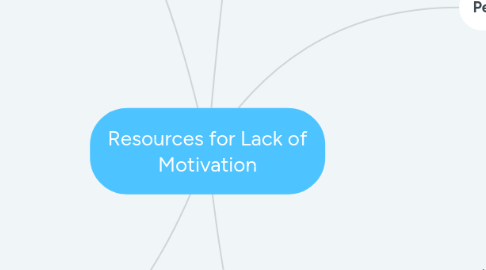
1. Meditation
1.1. Apps
1.1.1. Headspace
1.1.1.1. Meditations Tools
1.1.1.2. Mindfulness Tools
1.1.1.3. Sleep Tools
1.1.1.4. Stress Tools
1.1.2. Calm App
1.1.3. Insight Timer
1.1.4. Aura
1.1.5. Stop, Breathe, and Think
1.2. Benefits of meditation
1.2.1. Mental Health Benefits
1.2.1.1. May reduce anxiety/depresson
1.2.2. Physical Benefits
1.2.2.1. May reduce stress
1.2.3. Emotional Benefits
1.3. Types of Meditation/resources (for beginners)
1.3.1. Guided Meditation
1.3.1.1. Headspace
1.3.1.2. Youtube
1.3.2. Music
1.3.2.1. Spotify
1.3.2.2. Nature sounds
1.3.3. Podcasts
1.3.3.1. "Meditation Oasis"
1.3.3.2. "The Daily Meditation Podcast"
1.3.3.3. "Meditation Minis"
2. Therapy
2.1. CAPS (counseling & Psychological Services)
2.1.1. Easy access for students
2.1.1.1. Can help advise you about outside help
2.1.2. Part of your student fees
2.1.3. Good starting point for students
2.2. Off campus therapy
2.2.1. Traditional therapy
2.2.2. Can help you identify issues
2.2.2.1. Can help you talk through problems
2.3. Online therapy
2.3.1. Covid safe in person therapy alternative
2.3.2. Easier for students without cars
2.4. Text therapy
2.4.1. Easy access
2.4.1.1. Can be more comfortable for less social people
2.4.2. Access at more times
2.4.2.1. Less formal
2.4.2.2. Quicker responses for immediate problems
3. Most productive time for you
3.1. Finding out when you are the most preductuve
3.1.1. Chronotype
3.1.1.1. Find outs how much sleep you need
3.1.1.1.1. Getting enough sleep
3.1.1.2. What time is the best to wake up
3.1.1.3. What part of the day you are the most productive
3.2. Schedule your day out accordingly
3.2.1. Making sure you are not sleeping or working though those productive times
3.2.2. Keep the productive time for work with no distractions
3.2.3. get a planner and know what exactly needs to be done
4. Physical Activity
4.1. Increased Positive Mood
4.1.1. Exercise produces endorphins that act as natural pain killers
4.1.1.1. Strengthens bones and muscles
4.1.1.2. Improve ability to do daily activities
4.1.2. Can reduce feelings of negativity and laziness
4.1.2.1. Leads to feeling better throughout the day and be more productive
4.2. Reduce Health Risk
4.2.1. Daily exercise leads to a healthier life
4.2.1.1. Improves sleep
4.2.1.1.1. Getting the right amount of sleep is crucial for getting people to be motivated and productive
4.2.1.2. Improves self esteem
4.2.1.2.1. When people feel better about themselves, they tend to be more motivated in other areas of life
4.3. Daily Routine
4.3.1. Transitions mental state into a growth mindset
4.3.1.1. Begin to start noticing other areas improving
4.3.2. Can lead to getting on track with a schedule
4.3.2.1. Will be more organized in other areas of life
4.4. Stress Management
4.4.1. Leads to having more energy throughout the day
4.4.1.1. More energy relates to being more motivated to get work done
4.4.2. Reduces anxiety / depression
4.4.2.1. Less anxiety allows people to focus on stuff that is important to them
5. Personal Support System
5.1. Classmates
5.1.1. Big Study Groups
5.1.1.1. Small Study groups
5.1.2. Team work
5.1.3. Communicate on a regular basis
5.1.4. Communicate with Professors
5.1.4.1. Schedule weekly meetings
5.2. Family & Friends
5.2.1. Meet for coffee
5.2.1.1. Meet for Lunch
5.2.2. Get advice
5.2.2.1. Advisors
5.2.3. Share stories back and forth
5.3. Advisors
5.3.1. May lead to counseling or other services
5.3.2. Give appropriate guidance
5.3.3. Keep a schedule of classes and assignments
